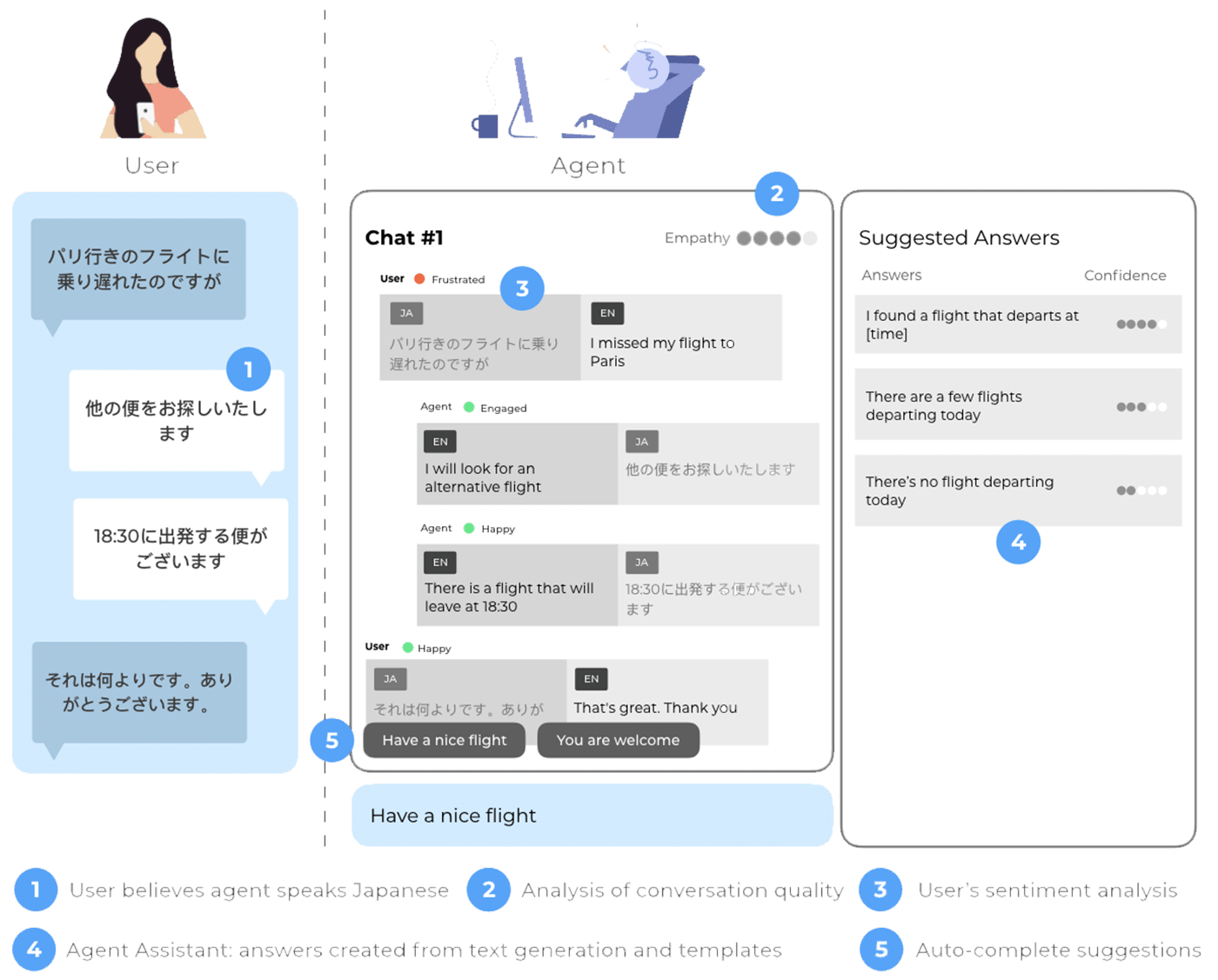MAIA: Multilingual AI Agent Assistants
MAIA (“MAIA: Multilingual AI Agent Assistants”) is a collaborative research project led by Unbabel and funded by the Agência Nacional de Inovação (ANI), the Fundação para a Ciência e Tecnologia (FCT), and the CMU-Portugal partnership program.*
Overview
Online chat is one of the fastest-growing customer support channels, especially with Millennials. In today’s world, supporting international customers via chat requires hiring native speaking agents for multiple languages – a scarce and costly resource. But with numerous advancements in language technology, and in particular, machine translation (MT) and dialogue systems, this can easily be automated.




Figure 4: Mockup of the user interface to be used by the human agent. Illustrated is the conversation history (on the agent’s language), a list of answer suggestions, a message box supporting auto-completion where the agent can type the response, and an indicator of the sentiment of the customer throughout the conversation.
However, current MT systems are still too brittle and impractical: first, they require too much data and computing power, failing for domains or languages where labeled data is scarce; secondly, they do not capture contextual information (e.g. current MT systems work on a sentence-by-sentence basis, ignoring the conversational context); thirdly, fully automatic systems lack human empathy and fail on unexpected scenarios, often leading to low customer satisfaction.
With MAIA, we’re developing a multilingual conversational platform where AI agents will assist human agents. This approach will overcome the above limitations through:
- New memory-efficient neural models for context-aware machine translation, suitable for online and real-time translation. These models will retain key aspects of a conversation (e.g., the gender of the customer), bringing them up whenever needed to translate a message.
- New answer generation techniques where the human agent (e.g., a tourism officer) will receive suggestions that reduce effort and increase the customer’s (e.g. a tourist) satisfaction.
- New techniques for conversational quality estimation and sentiment analysis to assess how well the conversation is addressing the customer’s needs, while simultaneously increasing “human empathy”.
- Integration of the scientific advances above into a full end-to-end product.
*This research is filed under the P2020 program, supervised by ANI under contract number 045909. It runs 2020-2023 within Unbabel, Instituto de Telecomunicações, INESC-ID, and Carnegie Mellon University.
